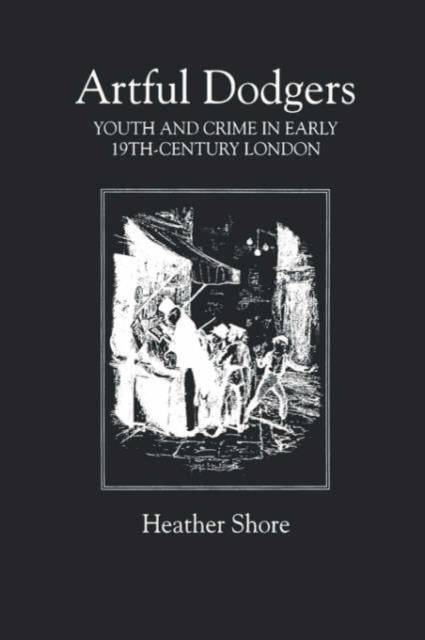
- Afhalen na 1 uur in een winkel met voorraad
- Gratis thuislevering in België vanaf € 30
- Ruim aanbod met 7 miljoen producten
- Afhalen na 1 uur in een winkel met voorraad
- Gratis thuislevering in België vanaf € 30
- Ruim aanbod met 7 miljoen producten
Zoeken
€ 59,95
+ 119 punten
Omschrijving
An examination of the circumstances of youthful delinquency in London in the early nineteenth century, and the legislative measures put in place to contain and control offenders. A well-researched and well-argued monograph contributing significantly to our understanding of juvenile delinquency. CRIME, HISTOIRE ET SOCIETESA fine book... based on a wide range of well-marshalled primary evidence that emphasizes the voice of young offenders - highly readable. AMERICAN HISTORICAL REVIEWThe early nineteenth century witnessed an increasing concern about the incidence of juvenile crime. Youthful delinquency was not new, but it was notuntil then that the foundations were laid for a juvenile justice system which would serve, with amendments, for the next century and more. Separate trial, separate penal provision, and an emphasis on reform rather than punishmentwere all enshrined in the new legislation.Heather Shore explores the processes and context of these legislative strategies, in which consideration of juvenile crime in London - with its close streets and alleys and conspicuous juxtaposition of poverty and wealth - played a major part, influencing elite perceptions of offending by children and young people. At the heart of this study is a critical consideration of the lives of young offenders. Dr Shore examines the process of offending, from the initial foray into crime, through apprehension and passage through the judicial system, to punishment and experience of penal and reform measures: prison, houses of correction, transportation and colonial emigration. HEATHER SHORE is Lecturer in Social and Cultural History, University of Portsmouth.
Specificaties
Betrokkenen
- Auteur(s):
- Uitgeverij:
Inhoud
- Aantal bladzijden:
- 206
- Taal:
- Engels
- Reeks:
Eigenschappen
- Productcode (EAN):
- 9780851158945
- Verschijningsdatum:
- 1/08/2002
- Uitvoering:
- Paperback
- Formaat:
- Trade paperback (VS)
- Afmetingen:
- 152 mm x 238 mm
- Gewicht:
- 331 g

Alleen bij Standaard Boekhandel
+ 119 punten op je klantenkaart van Standaard Boekhandel
Beoordelingen
We publiceren alleen reviews die voldoen aan de voorwaarden voor reviews. Bekijk onze voorwaarden voor reviews.











